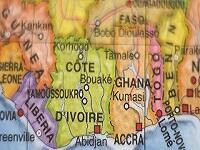News Brief
At the United Nations Ocean Conference, held in June, the United Nations Conference on Trade and Development (UNCTAD), the Development Bank of Latin America (CAF), the United Nations Convention on International Trade in Endangered Species of Wild Fauna and Flora (CITES), and the International Ocean Institute (IOI) announced the new Blue BioTrade initiative, which aims to establish sustainable biodiversity-based value chains, products and services. The initiative has identified four possible areas of focus: specialized fisheries, aquaculture and seafood products; sea-based cosmetics; marine pharmaceuticals; and coastal and marine ecotourism.
According to the UNCTAD’s BioTrade Initiative and BioTrade Facilitation Programme, strengthening value chains is a critical element in facilitating good practices related to the sustainable use and conservation of biodiversity. The Blue BioTrade initiative serves as a pathway to more sustainable and healthy oceans – the objective of Sustainable Development Goal 14, to preserve life below water. It is likely to be especially beneficial to coastal countries and communities and improve the livelihoods of smallscale fishermen.
Consultations hopeful for Afghanistan’s National Export StrategyIndustry leaders, small business owners and public-sector representatives have been participating in a series of consultations since May 2017 in Kandahar, Herat and Jalalabad to discuss the development of Afghanistan’s National Export Strategy (NES). The strategy is expected to provide a blueprint to improve value chains, increase competitiveness and address supply capacities and quality management. It will focus on socio-economic growth, private sector development, investment promotion, investor protection and economic diversification.
Developing a NES is central to the Trade for Economic Growth and Regional Cooperation programme for Afghanistan funded by the European Union and implemented by the International Trade Centre in support of Afghanistan’s Ministry of Commerce and Industries. Mohammad Qurban Haqjo, the nation’s deputy minister for commerce, has stated that the strong public and private-sector dialogue that has taken place will be invaluable in developing a sustainable and inclusive strategy. Consultations will continue until the end of July 2017 followed by a secondary national consultation in Kabul.
New report on West African cross-border cooperationThe Organisation for Economic Co-operation and Development (OECD), together with the Sahel and West Africa Club (SWAC), has released a report entitled ‘Cross-border Cooperation and Policy Networks in West Africa.’ The need for mutual cross-border assistance will increase substantially as the forecast population growth of nearly 200 million for West Africa by 2050 will encourage densification of regional and border settlements.
The report analyzes the current situation,
its potential and the priorities for its
development. It also explores how those elements
intersect and suggests the most effective
public policies.
Key recommendations include using
social-network analysis to make regional and
national cross-border cooperation policies
more adaptable to local conditions; implementing
a series of place-based policies;
and integrating the directives of the Niamey
Convention on cross-border cooperation into
national law.
The United Nations and the government
of the State of Palestine signed the second
United Nations Development Assistance
Framework (UNDAF) for 2018-2022. This
$1.3 billion, five-year strategy was inspired
by the Sustainable Development Goals
and Agenda 2030 to promote inclusive
development.
The new strategy is centred around
projects in four core areas supporting Palestine’s
path to independence; its access
to accountable, effective and responsive
democratic governance; sustainable and
inclusive economic development; and promoting
social development and protection.
The agreement is closely aligned with the
government’s new National Policy
Agenda for 2017-2022.
Sixteen United Nations agencies with offices in Palestine and four non-resident agencies, including the International Trade Centre (ITC), are signatories to the accord. ITC is currently working with Palestine through its Aid for Trade Initiative for Arab States to improve transparency on non-tariff measures (NTMs) and create regional trade intelligence capacities. It is ready to continue its support of Palestinian small and medium-sized enterprises (SMEs) over the next five years.
WTO marks 20 years of Information Technology Agreement with new publicationSince the Information Technology Agreement (ITA) entered into force in July 1997, approximately $1.7 trillion in information, communications and technology-related tariffs have been eliminated. Eighty-two World Trade Organization (WTO) members are now signatories to the ITA, representing 97% of world trade in ICT products. The report, ‘20 Years of the Information Technology Agreement: Boosting Trade, Innovation and Digital Connectivity’, focuses on the evolution of the ITA and its economic impact.
According to the WTO, world ICT
exports have more than tripled in value over
the last 20 years and now represent 15% of
total merchandise exports, surpassing automotive
products, textiles and clothing, and
pharmaceuticals. Further, the ITA has deepened
developing countries integration into
global production networks. ICT exports from
developing economies rose from 26% in 1996
to 63% in 2015.
The lower costs and greater availability
of computers and mobile phones has resulted
in increased access to the internet and growth
of the digital economy, creating more opportunities
for trade and making it easier for
small businesses to acquire new technologies,
according to the WTO report.
A joint study by the International Labour Organization (ILO) and the World Trade Organization, (WTO), shows that boosting core work, technical and management skills can help countries and businesses meet the challenges of an ever more competitive global economy by reducing costs, improving quality of products. ‘Investing in Skills for Inclusive Trade’ suggests that countries with responsive skills development systems tend to be more successful in putting skills to use in tradable activities and thereby improving that country’s competitive position in the global economy.
‘While trade has helped lift hundreds
of millions of people out of poverty and
been a crucially important tool for growth,
development and job creation there are
those who have been left behind. Improving
the capacity of our workers and managers
to respond to these changes is clearly is the
best way to foster more inclusive trade,’ said
WTO Director-General Roberto Azevêdo.
‘Providing the right skills is essential to
reap the benefits of trade in increased productivity
and better jobs, and to ensure that
trade contributes to inclusive development.
In a fast changing world of work it is more
important than ever that skills development
responds to current and emerging skills
needs, enhancing outcomes for workers and
firms both now and in the future,’ said ILO
Director-General Guy Ryder.









